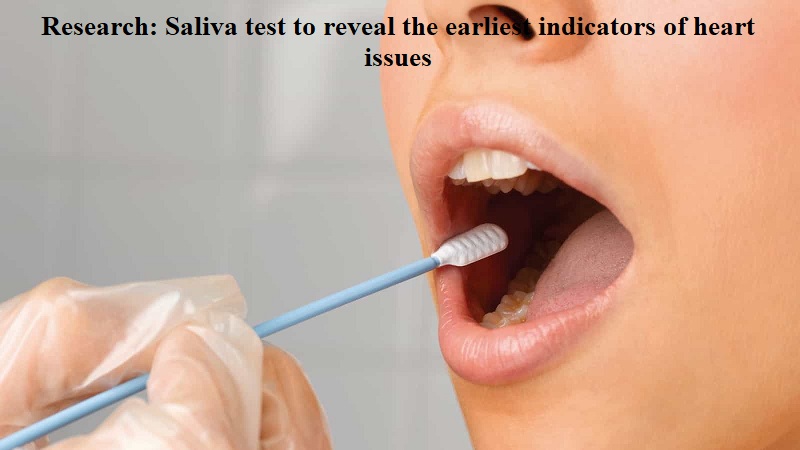
A group of scientists has introduced a potential breakthrough in the detection of cardiovascular disease, unveiling a simple saliva test that could unveil early indicators of heart-related issues.
Their research has highlighted a compelling link between elevated levels of white blood cells in the saliva of young and healthy adults and an initial sign of cardiovascular disease.
The study emphasizes that increased levels of white blood cells, usually indicating gum inflammation, are closely connected to compromised flow-mediated dilation, a precursor to heart disease.
This finding implies that inflammatory agents might enter the bloodstream through the gums, initiating damage to the vascular system and setting the stage for cardiovascular diseases.
This groundbreaking research, recently published in the journal Frontiers in Oral Health, solidifies the connection between heightened counts of white blood cells and impaired flow-mediated dilation, which acts as an early indicator of suboptimal arterial health.
Trevor King, the study’s corresponding author from Mount Royal University in Canada, spoke to PTI and emphasized the significance of these discoveries.
He said, “Even in young, healthy adults, low levels of oral inflammatory load may have an impact on cardiovascular health—one of the leading causes of death in North America.”
This research is not isolated but builds upon earlier studies linking periodontitis, a common gum infection, to the onset of cardiovascular disease. Scientists speculate that inflammatory components originating from the gums could enter the bloodstream, potentially compromising the integrity of the vascular system.
Ker-Yung Hong, the study’s first author, who now conducts dental research at the University of Western Ontario, Canada, emphasized the broader implications of their findings. She noted, “If we are observing that oral health may affect the risk of developing cardiovascular disease even in young, healthy individuals, this holistic approach can be applied at an earlier stage.”
While highlighting the potential significance of their findings, Trevor King stressed the importance of maintaining optimal oral hygiene and regular dental visits, particularly in light of this emerging evidence.

Post Your Comments